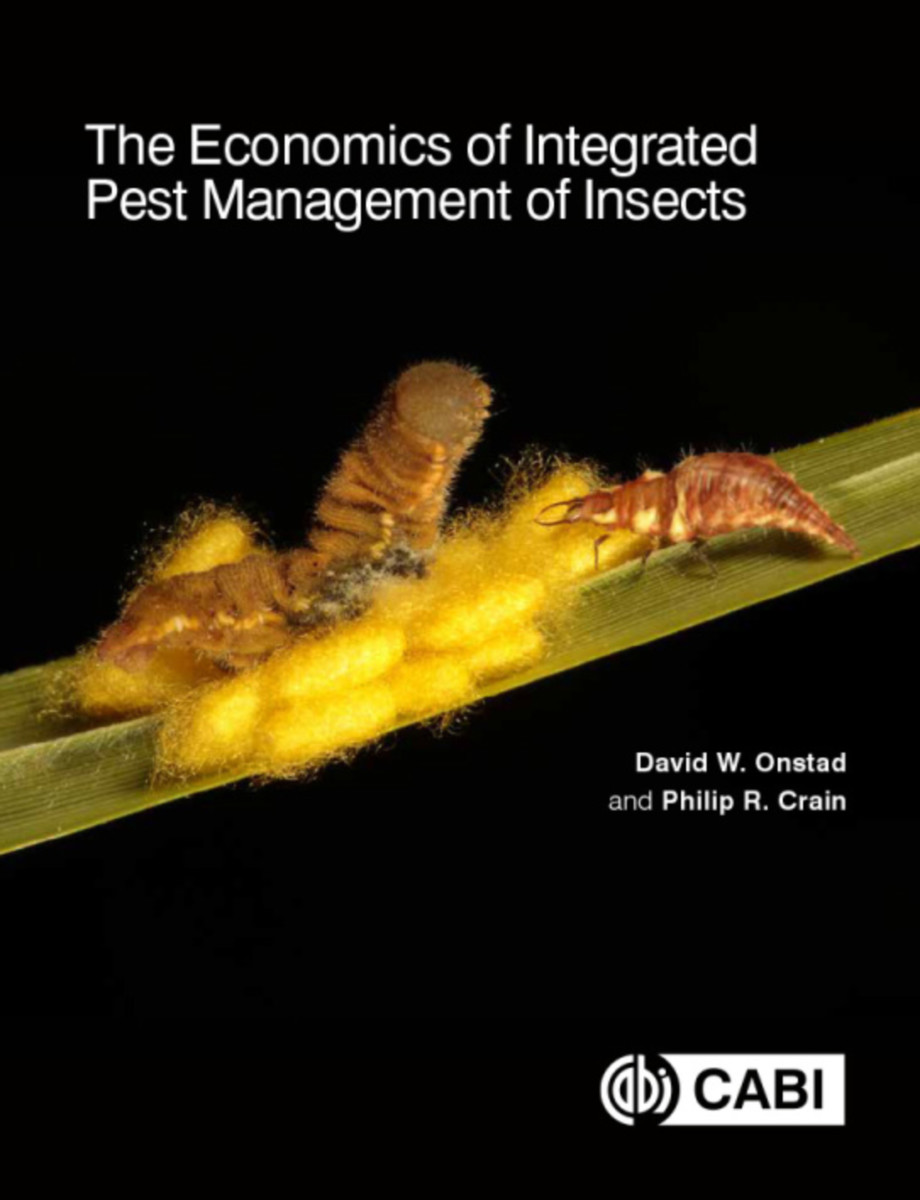The Economics of Integrated Pest Management of Insects
- Publisher
CABI - Published
25th October 2019 - ISBN 9781786393678
- Language English
- Pages 232 pp.
- Size 7" x 9"
Many biological studies on insect management do not consider economics or fundamental economic principles. This book brings together economists and entomologists to explain the principles, successes, and challenges of effective insect management. It highlights the importance of economic analyses for decision making and the feasibility of such approaches, and examines integrated pest management (IPM) practices from around the world with an emphasis on agriculture and public health.
The book begins by establishing an economic framework upon which to apply the principles of IPM. It continues to examine the entomological applications of economics, specifically, economic analyses concerning chemical, biological, and genetic control tactics as well as host plant resistance and the cost of sampling and is illustrated with case studies of economic-based IPM programs from around the world.
1: Major economic issues in integrated pest management
2: Economic evaluation of integrated mosquito control in urban areas
3: What can we learn from more recent (and more "rigorous") economic impact assessments of integrated pest management farmer field schools (IPM-FFS)?
4: Economic value of arthropod biological control
5: Economics of host plant resistance
6: Economic principles and concepts in area-wide genetic pest management
7: Economic thresholds and sampling in integrated pest management
8: Economic impacts of integrated pest management practices in developing countries
9: The roles of soft technologies and cooperative extension in solving wicked integrated pest management problems
10: Perseverance pays-off: Finishing the integrated pest management marathon with economics
David W. Onstad
David Onstad received his Ph.D. at Cornell University in 1985. He was a professor at the University of Illinois until 2011 when he joined DuPont Pioneer. His expertise includes economic entomology, systems analysis, ecology, and pest management. The second edition of his book on insect resistance management was published in 2014.
Philip R. Crain
Philip Crain received his Ph.D. in Entomology from the University of Kentucky studying novel mosquito control strategies. After a post-doctoral research position at Westfälische-Wilhelms Universität in Münster, Germany, he joined the insect resistance management research team at DuPont Pioneer. Philip has a strong ecological background, and promotes the use of computer models to understand complex interactions. Population genetics and population dynamics models should include economic analysis if the goal is control of pests or disease.


